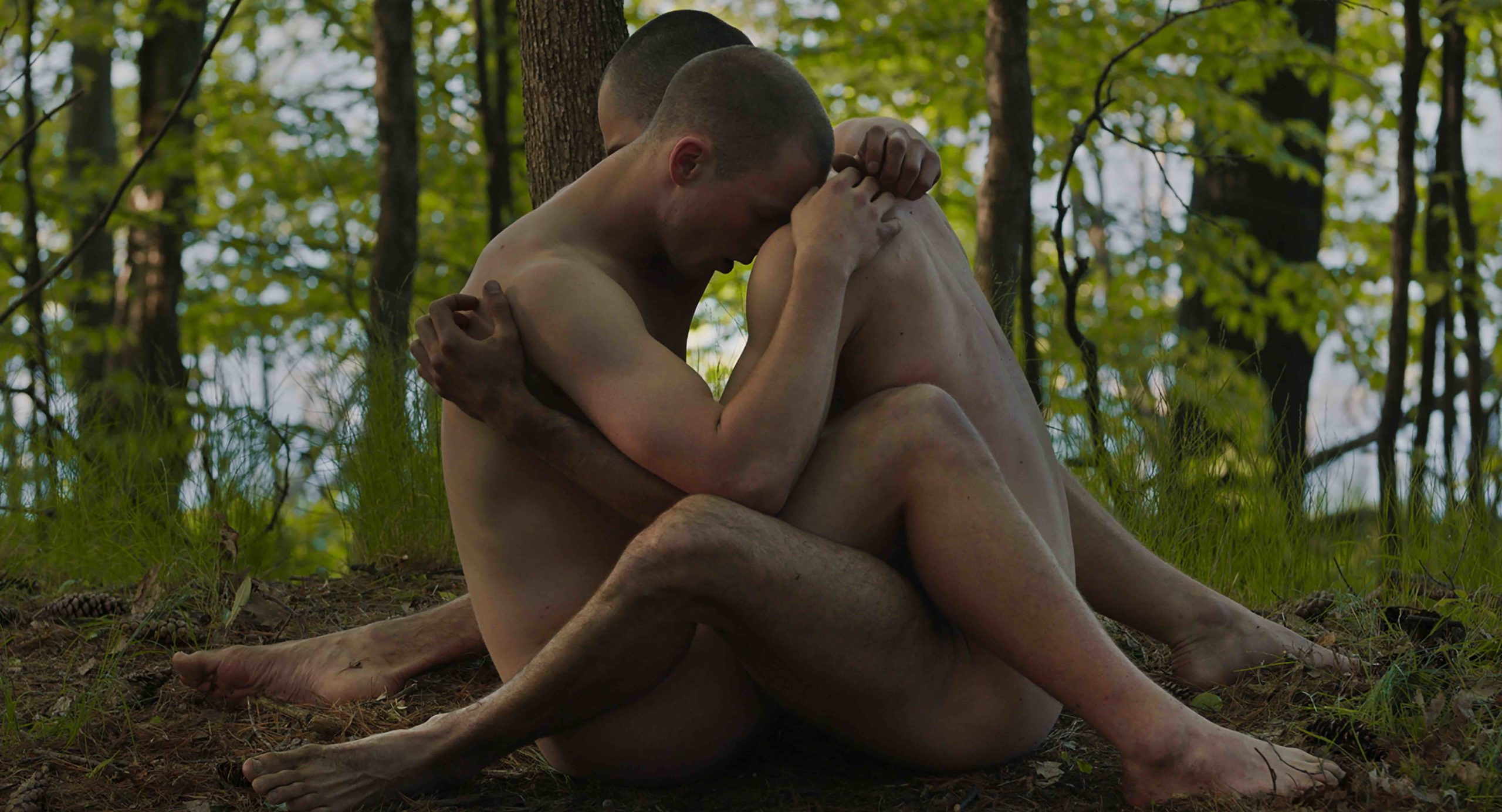The Narcissus myth, where a man falls in love with his own reflection and ultimately destroys himself over it, has only grown more relevant with time. The dominance of social media, the performative aspects that come with it, self-help culture, various forms of media pushing self-affirmation, and a culture driven towards individualism are just some of the ways we’ve led ourselves to a place where terms like “toxic positivity” begin taking prominence. It’s a topic well worth exploring, and thank God Canadian provocateur Bruce LaBruce chose to. Rather than getting too intellectual about it, Saint-Narcisse gives audiences the reflection of their obsessed selves they deserve: a sleazy, incestuous, soapy good time evoking ‘70s B-movies as it drags traditional values around religion and family to the extreme endpoint of loving oneself.
Set in 1970s Quebec, the film starts with 22-year-old Dominic (Felix-Antoine Duval), who spends his days taking care of his grandmother and getting off to selfies he takes with his Polaroid camera. After his grandmother passes, he finds a box of letters hidden in her bedroom that comes as a shock: his mother (Tania Kontoyanni) never died giving birth, but resides in the small town of Saint-Narcisse and has spent years looking for him. Dominic immediately hops on his motorcycle to find her, eventually discovering she lives on the outskirts of town, in exile from an affair with a married woman. Also living with her is Irene (Alexandra Petrachuk), the daughter of her late girlfriend, who isn’t too happy about Dominic’s presence disrupting their routine.
These revelations are just the setup, as no one in this new family unit knows about an even bigger bombshell residing at the town’s monastery. Dominic’s mother actually gave birth to twins, but she was only made aware of one child’s existence. The other was sent to be raised by nuns, and now Felix (also Duval) is a narcissistic, angsty young adult under the care of the perverted Father Andrew (Andreas Apergis), who preys on him and the other young men at church. It doesn’t take long for Dominic and Felix to find themselves drawn to each other and, in their discovery, find newer, socially unacceptable ways to act upon an attraction to themselves.
LaBruce’s inspiration for Saint-Narcisse may be a result of current issues, but he takes his direction from the past. The key thing LaBruce does is avoid as much self-awareness as possible in his story and characters. Every actor plays it straight no matter how absurd the story might get, while DP Michel La Veaux and editor Hubert Hayaud use techniques that recall the time period instead of kitschy homage: dissolves, slow zooms, jump cuts, flashbacks and dream sequences, soft focus, and other stylistic choices ring organic to the film’s DNA, not just for viewers to pick up on some sort of faux nostalgia. Saint-Narcisse sees these stylistic elements as tools rather than the final product, using them to build its own rich, off-kilter world.
Although it would be untrue to say Saint-Narcisse is lacking any self-awareness, since LaBruce can’t help himself sometimes. And who could blame him? The seriousness of such silly, shocking subject matter allows LaBruce to get cheeky with his comedy, whether it’s someone asking “Who does that?” about Dominic’s selfies, or when someone tells Dominic to go screw himself before he does just that. (Also worth noting that every sequence in the monastery looks like it could turn into gay porn at any moment.) Some might balk at the film’s light, non-judgmental tone towards incest, abuse, sexuality, and religion, but LaBruce is smart in how he lets that tension rest on the audience and whatever baggage they may bring to the film instead of trying to acknowledge or appease to it. If anything, Saint-Narcisse is a welcome piece of provocative entertainment, existing as its own weird and sincere comedy for those willing to take the ride.
Saint-Narcisse opens at NYC’s Quad Cinema and in Virtual Cinema on Friday, September 17.

